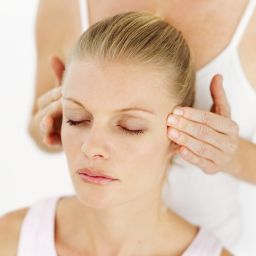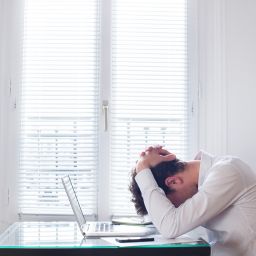Balancing work and home can be hard at the best of times. Throw in some exhaustion and it’s even harder. Do you wake up in the mornings feeling just as tired as the night before? Perhaps the only thing that keeps you going is a coffee or two in the morning before work, followed by more as the day goes on?
A lack of sleep can cause inflammation in your body. It can cause exhaustion, a complete lack of energy and a whole host of other things. This week, we are looking at how to improve all aspects of your wellbeing. Getting enough and good quality sleep can improve your productivity and relationships at work and home.
Is sleep a waste of time?
Sleep is crucial to optimum health and wellbeing; many of our body’s processes are affected by it. Sleep regulates your HPA access and your hormonal system. Without enough sleep, we lack energy, concentration and productivity. Sleep is critical in helping our bodies repair themselves. Our body has natural sleep/wake cycles known as the circadian cycle. When we’re asleep, physical repair takes place between 10pm and 2am and after 2am most of our psychogenic repair is done. If you miss out on sleep, your body doesn’t play ‘catch up’, it just doesn’t repair itself properly. This puts our nervous system under stress and on top of that, your brain gets tired because instead of being asleep, you are awake and using more energy.
Maybe it’s not just the tiredness but you might feel like people are against you? A lack of sleep could be why. A recent study was conducted where people were shown different facial expressions. Those that were sleep deprived saw more threatening faces. A lack of sleep meant that their bodies went into survival mode and interpreted external reality as more threatening than those who had had enough sleep.
Ten top tips to improving sleep
1.Make sure you and your employees take a morning break outside, 15-30 minutes per day.
Your circadian cycle runs in the background of the brain. It helps explain why you might feel energised or sleepy at the same times most days. In addition, light and darkness can affect your circadian rhythm and both natural and unnatural light affects hormone regulation. The sunlight stimulates the pineal gland and helps anchor your physiology to time . As a result, when your body sees the sun you will learn what time it is and naturally feel more awake. You can see why it can be hard in the midst of winter for your employees who leave in the dark and get home in the dark?
2. Around 2-3 hours before bed (or once the sun has set) use the Twilight mode on your phone/tablet
Electronic devices give off blue light which up-regulates the hormone cortisol and down regulates melatonin and seratonin. This means that your body is trying to wake up and get ready for action, which we do not want happening in the evening.
3. Use your bedroom for two things only, sleep and sex.
4. Before and during sleep, your bedroom should be as cool, dark and quiet as possible, remove electronic devices and any light source. Reduce the amount of artificial light in your home once the sun has gone down. Instead of bright lights, try using dimmers, beeswax candles and/or Himalayan Salt Lamps, for instance.
5. If you get woken up quickly in the morning with a loud alarm, a stress response can be created in your body. Try an alarm sound that wakes you up more progressively consequently creating less stress for your body.
6. Try not to have emotionally supercharged discussions in the evening. By arguing in the evening, your stress levels rise which wakes you up. Save these discussions for the morning.
7. Try a hot shower or bath before bed.
8. Don’t use perfumes, make-ups or any synthetic scents, particularly in the evening. These can disrupt your sleep because your body is working hard to detox them out of your system. As a result, this creates a stress response for your body.
9. Set yourself a routine to get your body and mind prepared for bed, and keep it the same each night, including the time you go to bed.
10. To get the best and most restorative sleep, go to bed earlier and wake up earlier.
Sleep is crucial to help you and your employees achieve optimum health and wellness, improved energy levels and boost productivity in the workplace. Give some of these suggestions a try and see how much better you feel tomorrow morning!
If you think you and your colleagues would benefit from learning more about sleep and it’s importance to health and wellbeing then get in touch to find out more about our Sleep Workshops for Wellbeing.
















